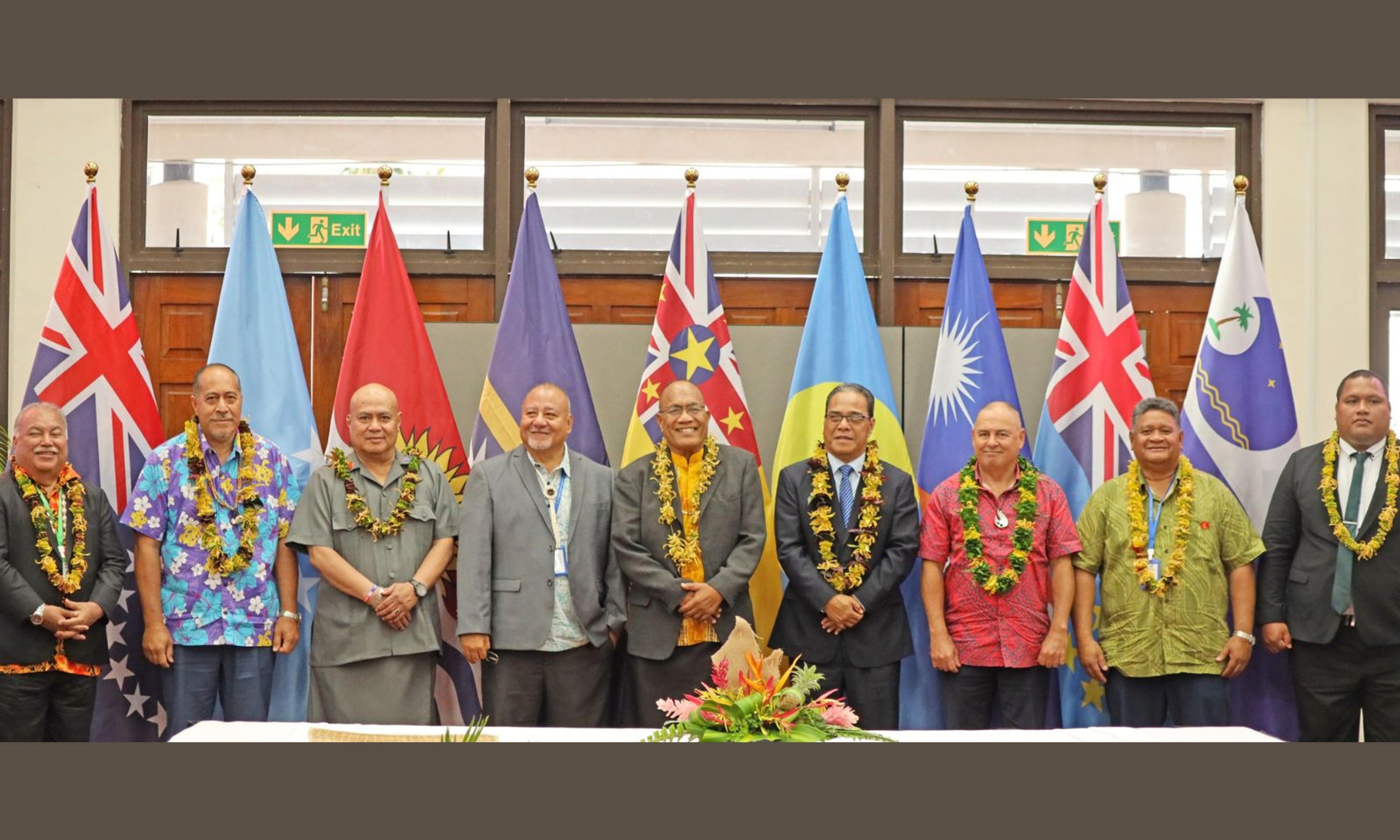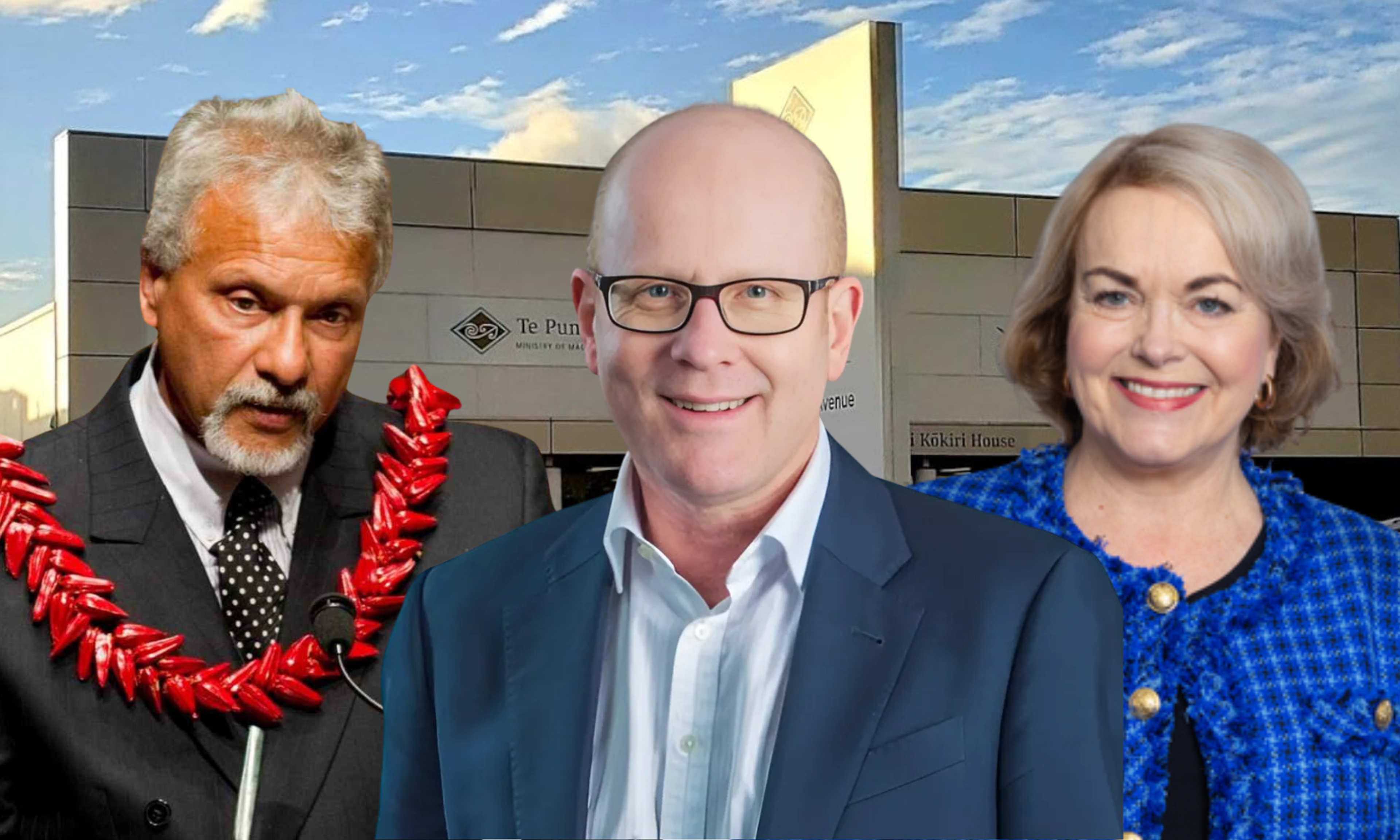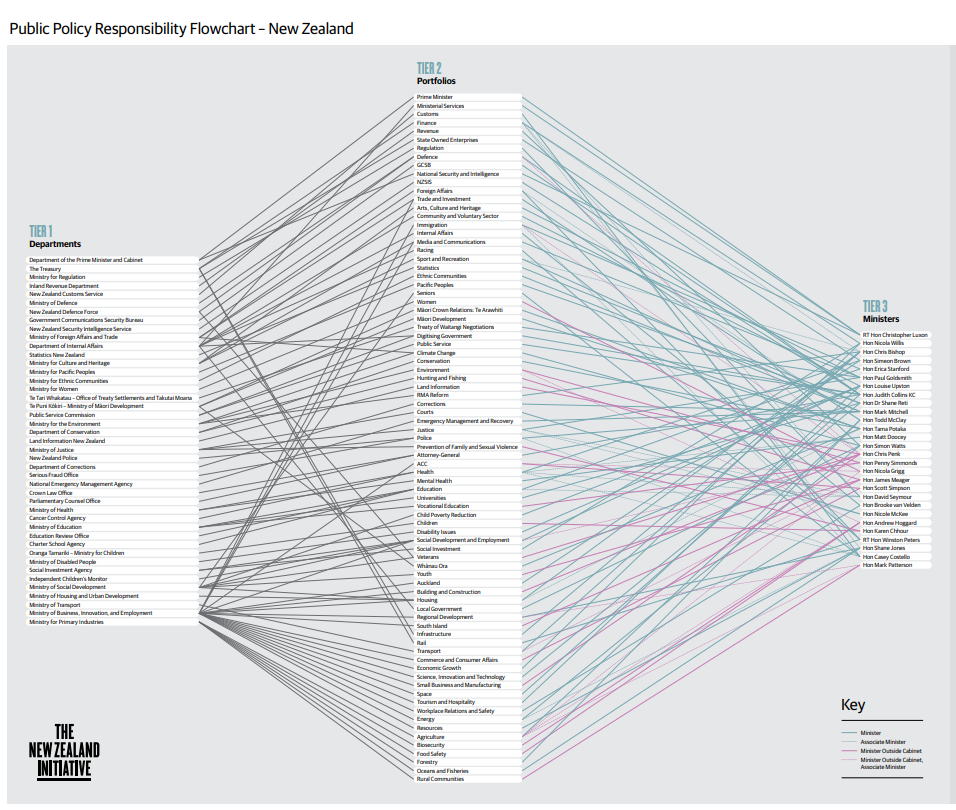

From left: Anae Arthur Anae, Roger Partrige and Judith Collins discuss the impact of a possible merger of smaller government departments.
Photo/LinkedIn/File
Calls to merge govt ministries in NZ spark concerns over future of Pacific representation
A report recommends consolidating smaller government departments, including the ministries for Pacific Peoples, Ethnic Communities, and Women, to improve efficiency.




Two seasonal workers found dead at Bay of Plenty orchard

Pacific Warned: Global powers will act if island nations remain weak


US withdrawal from global bodies raises concern for the Pacific's climate efforts - experts


Two seasonal workers found dead at Bay of Plenty orchard

Pacific Warned: Global powers will act if island nations remain weak
A new report has described the current New Zealand government system as “a mess” and suggests that merging ministries could improve efficiency.
But not everybody agrees. A Sāmoan community leader warns Pacific voices could be lost in the process.
The report, titled Unscrambling Government: Less Confusion, More Efficiency, and developed by the New Zealand Initiative, states that the country has “one of the most complex systems of government in the developed world”, with 81 ministerial portfolios and 43 government departments.
The report proposes merging smaller ministries, such as Pacific Peoples, Ethnic Communities, Seniors, and Women, into a larger “Home Affairs” department.
Roger Partridge, a co-author of the report and chair of the New Zealand Initiative, says the current structure leads to “fragmented decision-making, a lack of accountability, and higher fiscal costs”.
He compares New Zealand’s governmental setup to “a bowl of spaghetti”, saying that more streamlined countries with populations similar to Aotearoa’s (between five and 10 million), typically operate with only 15 to 20 ministerial portfolios and about 20 government departments.
Watch Roger Partridge's full interview below.
Partridge says some departments, like the Ministry of Business, Innovation and Employment (MBIE), report to as many as 20 ministers.
He adds that when multiple ministers are responsible for a single policy area, accountability becomes diluted, and no minister is fully accountable for the outcomes.
Speaking with William Terite on Pacific Mornings, Partridge says merging smaller departments would improve accountability without necessarily reducing the overall number of ministers, claiming that the outcomes for Pacific communities could remain unchanged if a dedicated group within a larger department continued to advocate for their interests.

The report illustrates government deparments, portfolios and ministers. Image/NZ Initiative
“You might have one minister for communities able to take a holistic view across the issues that are facing communities generally.”
When asked whether efficiency might come at the cost of visibility for Pacific issues, Partridge says he understands the concerns, but adds that the report aims to address common public policy challenges.
“The quality of the education system, the quality of the health system, the availability of affordable housing. So we're really stepping back and saying, ‘Well, we're beset with some really gnarly public policy challenges in New Zealand. How can we help get government into the right shape to tackle them?’, and every community will benefit from that.”
Concerns about losing representation
The report aligns with earlier recommendations from the Public Service Commission in March 2024, which suggested merging agencies with fewer than 100 staff. In a related restructuring initiative later that year, 57 roles were cut.
Anae Arthur Anae, a former National MP and New Zealand’s first Pacific member of Parliament, warns the proposal risks undermining the ministry’s purpose. “It sounds like they’re trying to bury the ministry,” he tells PMN News.
“We’ll get lost in a big conglomerate with no value. Are they saying they want to do away with the ministry altogether and amalgamate into just one bigger ministry where we are just one of many?”

Anae Arthur Anae is hesistant about the proposal to merge the Ministry for Pacific Peoples into a larger department. Photo/File
Anae says the Ministry for Pacific Peoples is vital for connecting communities with government policy and holding agencies accountable.
While he acknowledges that recent budget cuts have impacted its effectiveness, he believes abolishing it entirely is not the solution.
“Part of those cuts is probably because they believe we have never really delivered what we’re saying we’re delivering. Now, if that hasn’t been done effectively, are our people getting the benefits we should be getting? Yes or no? But the key is to ensure our community is connected to government policy - that’s where the real value lies.”
He insists the ministry take a more proactive role in advocating for Pacific communities. “The Ministry should be talking to all the different ministries to see what they are doing for Pacific people,” he says. “If we go into one big basket, I can’t see that being very effective in any way.”
A changing political landscape
Partridge says the expansive Cabinet structure has grown since the early 1990s due to coalition politics under the Mixed-Member Proportional (MMP) electoral system.
According to him, instead of passing a portfolio to a coalition partner outright, ministers often “slice off a piece of an existing portfolio”, overlooking the implications of such actions.
He says the practice can lead to situations where a minister, like Judith Collins, is responsible for many different areas, such as defence and the attorney general, rather than focusing on one coherent area of expertise.
Listen to Judith Collins' full interview.
The report recommends streamlining cabinet portfolios, citing examples from Ireland, the United Kingdom, and Australia, which show how senior ministers can delegate responsibilities to junior ministers while retaining ultimate accountability.
Collins, who is also the Minister for Public Service, has been unable to confirm a timeline for the possible merger or the number of jobs that may be at risk.
“We’re still looking at some very preliminary advice,” she tells PMN News. “If we look at some of these particularly smaller agencies, quite a large chunk of their costs are what we could normally call administrative or back-office areas, and it can put quite a huge burden on those agencies that are trying to be very outward-focused towards particular populations.”
She says sharing some back-office costs could improve efficiency, but adds that this outcome is not guaranteed. “My view is always, before you merge, you have to work out what it is you're trying to achieve, and are you going to achieve it, or are you just going to add lots of things together?”
A spokesperson for the Ministry for Pacific Peoples says, “Apologies, but the ministry is not available for comment on this matter”.